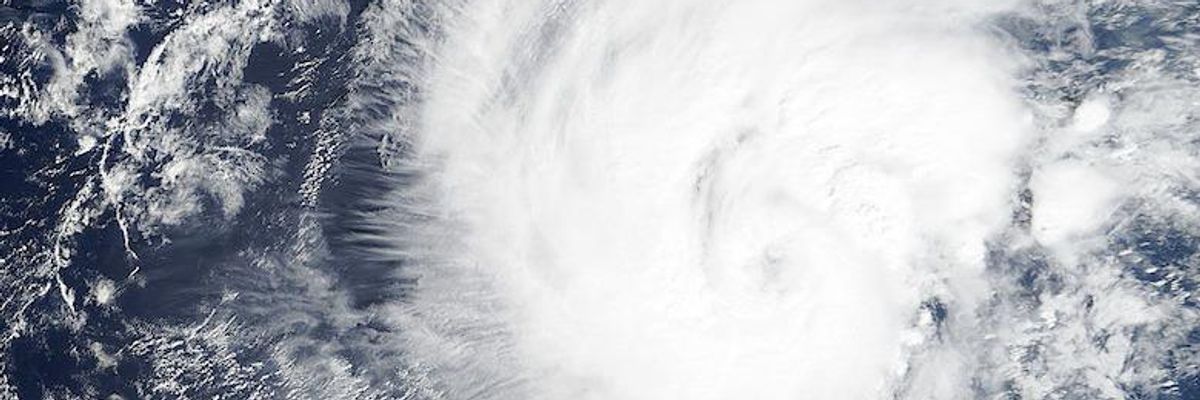The world's warm ocean waters are experiencing some very unusual hurricane behavior right now, meteorologists say.
Right now in the eastern Atlantic, Hurricane Alex is headed towards the Azores, and it's the first hurricane to form in month of January since 1938. With sustained winds of over 85 mph, the Category 1 hurricane is even stronger than the hurricane of '38.
The National Hurricane Center posted in an update Thursday morning: "Remarkably, Alex has undergone the transformation into a hurricane."
In the Central Pacific, Tropical Storm Pali on Tuesday became Hurricane Pali. Meteorologist Bob Henson writes: "Pali is the earliest named storm and earliest hurricane on record between the International Date Line and the Americas." That means it beat the record previously held by Hurricane Ekeka in January 1992.
By Thursday morning, Pali was downgraded to a tropical depression.
Weather Underground reports: "This is on the heels of a historically active 2015 tropical season in the Pacific Ocean," adding, "Pali will continue to track fairly close to the equator, potentially ending up between 1 to 2 degrees north latitude. According to the Central Pacific Hurricane Center, this is 'something rarely seen in the central Pacific.'"
Meteorologist Jeff Masters wrote Wednesday that having the two named storms in January in the Atlantic and Central Pacific "would have been unimaginable a few decades ago."
Explaining why they represent anomalies, Masters writes: "The average date of the first named storm in the Atlantic is July 9; the Central Pacific also typically sees its first named storm in July."

